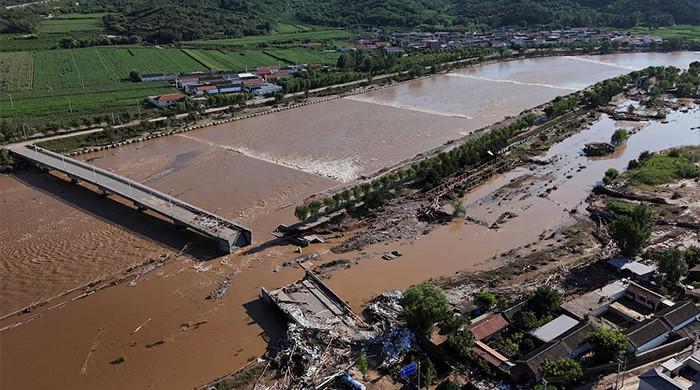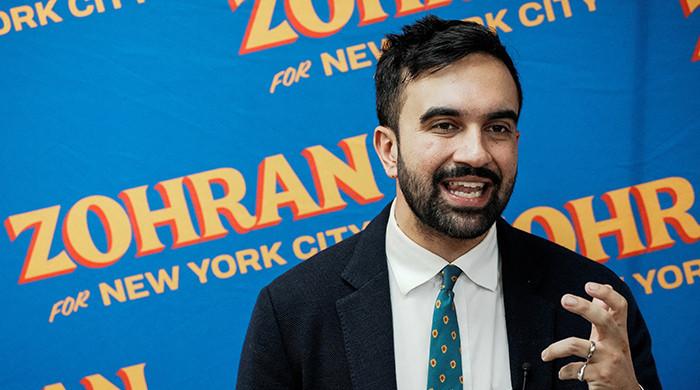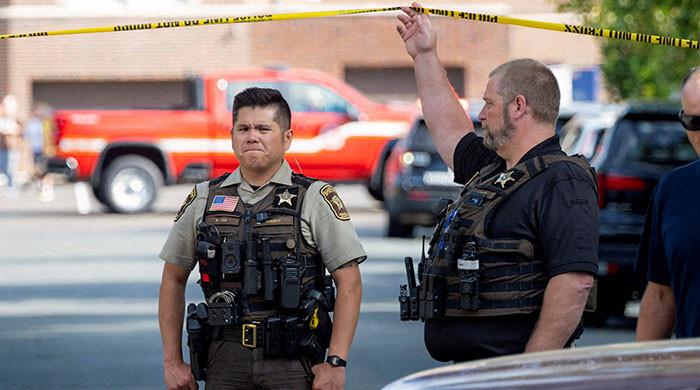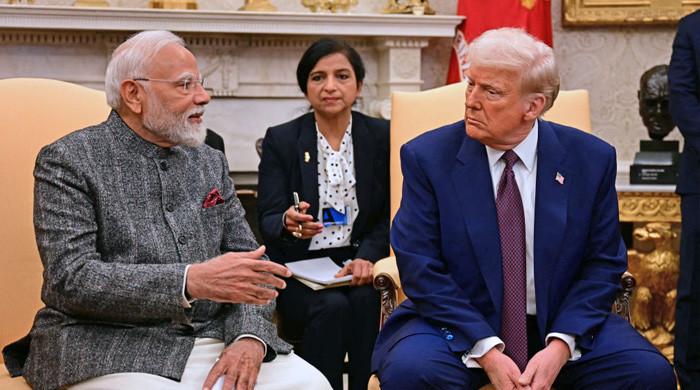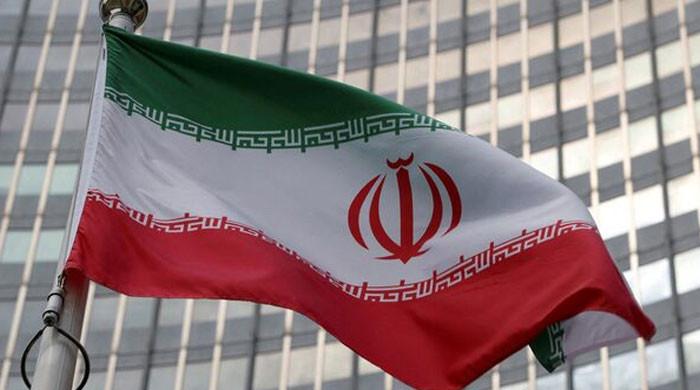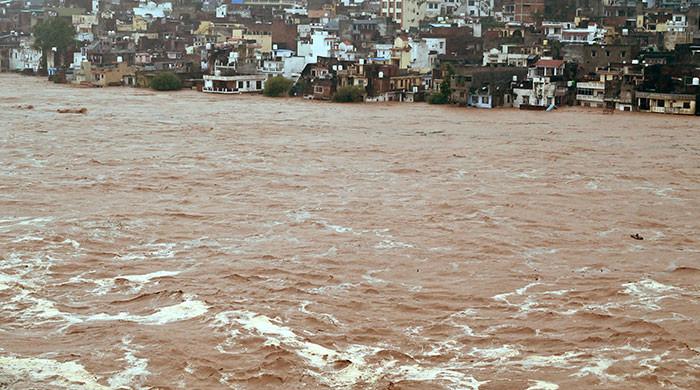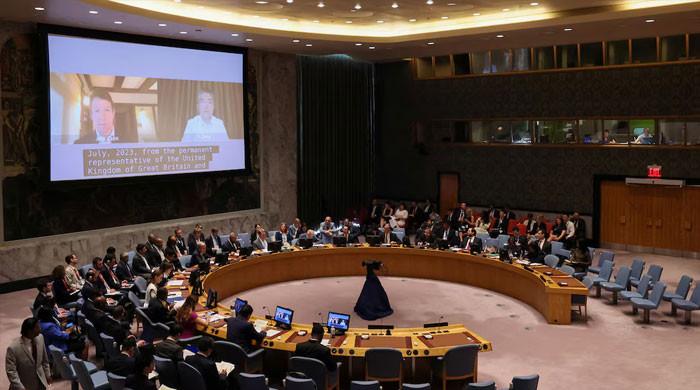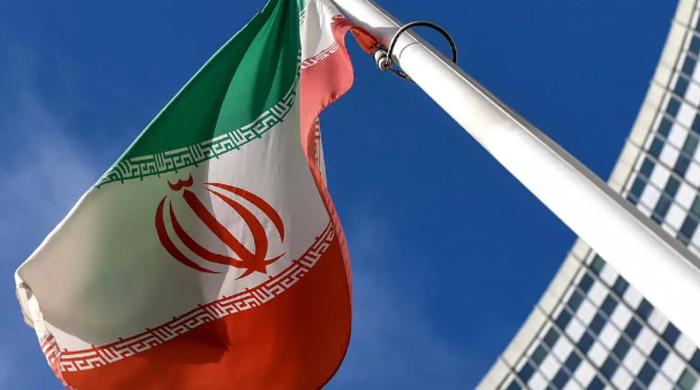France considering 'all options' after worst riots since fatal shooting
A 17-year-old's death has ignited longstanding resentment over incidents of police violence and allegations of systemic racism
June 30, 2023
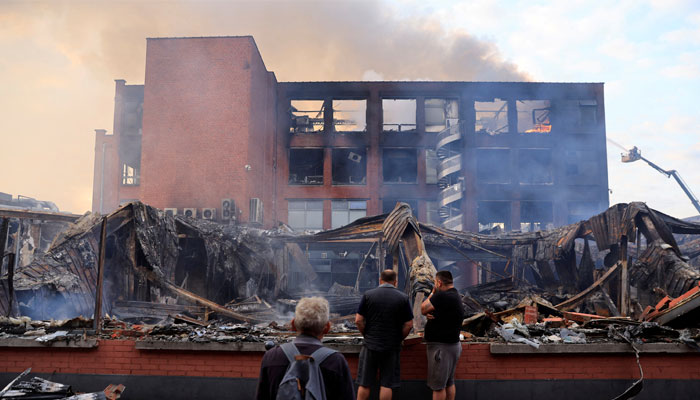
- PM Borne says all options for restoring order on table.
- Third night of unrest rocks major French cities.
- Hundreds arrested, more than 200 police injured.
PARIS: After rioters torched buildings and cars and looted stores nationwide in a third night of rage sparked by the fatal police shooting of a teenager of North African descent, France on Friday said it was keeping "all options" on the table to restore order.
The 17-year-old's death, caught on video at a traffic stop, has ignited longstanding resentment among poor, racially mixed, urban communities over incidents of police violence and allegations of systemic racism within law enforcement.
More than 200 police were injured and 875 people arrested overnight, authorities said, as rioters clashed with officers in towns and cities across France, with buildings as well as buses and other vehicles torched, and stores looted.
The government would consider "all options" for restoring order, Prime Minister Elisabeth Borne told reports, earlier calling the violence "intolerable and inexcusable" in a tweet.
President Emmanuel Macron, in televised comments from a cabinet crisis meeting, said he would ask social media platforms to remove "the most sensitive" footage of rioting from their feeds, and to disclose to authorities the identities of users who foment violence.
Macron, who has so far ruled out declaring a state of emergency, left a European Union summit in Brussels early to attend what was the second cabinet crisis meeting in two days.
He also said, without giving details, that some unspecified public events would be cancelled in regions hit by unrest.
In the southern city of Marseille, France's second-largest, authorities banned public demonstrations set for Friday, said all public transport would stop at 7pm local time, and encouraged restaurants to close outdoor eating areas early.
A Paris public transportation source told broadcaster BFM TV that tram and bus services in the capital would end at 9pm each day until further notice.
In an earlier bid to quell the violence, Interior Minister Gerald Darmanin had on Thursday night increased national police deployments fourfold to 40,000 officers, 249 of whom were injured, the ministry said.
Energy Minister Agnes Pannier-Runacher said several staff of power distribution firm Enedis were also injured by stones thrown during the clashes.
The interior ministry said 79 police posts were attacked overnight, as well as 119 public buildings including 34 town halls and 28 schools.
Violence flared in Marseille, Lyon, Pau, Toulouse and Lille as well as parts of Paris, including the working class suburb of Nanterre, where 17-year-old Nahel M — who was of Algerian and Moroccan descent — was shot dead on Tuesday.
Flashpoint Nanterre
Overnight videos on social media showed urban landscapes ablaze across the country. A tram was set alight in the eastern city of Lyon and 12 buses gutted in a depot in Aubervilliers, northern Paris.
In Nanterre on the capital's outskirts, protesters torched cars, barricaded streets and hurled projectiles at police following an earlier peaceful vigil held to pay tribute to the dead teenager.
In the Chatelet Les Halles shopping mall in central Paris, a Nike shoe store was broken into, and several people were arrested after store windows were smashed along the adjacent Rue de Rivoli shopping street, Paris police said.
A source told Reuters that several Casino supermarkets were looted across the country.
In Geneva, the United Nations rights office emphasized the importance of peaceful assembly and urged French authorities to ensure that use of force by police is legal, proportional and non-discriminatory.
"This is a moment for the country to seriously address the deep issues of racism and racial discrimination in law enforcement," spokesperson Ravina Shamdasani said.
Rights groups allege systemic racism inside law enforcement agencies in France, a charge Macron has denied. In 2020 his government promised "zero tolerance" of racism within law enforcement agencies.
The policeman, who prosecutors said had acknowledged firing a lethal shot at the teenager, was on Thursday placed under formal investigation for voluntary homicide — equivalent to being charged under Anglo-Saxon jurisdictions. He is being held in preventive custody.
His lawyer, Laurent-Franck Lienard, said his client had aimed down towards the driver's leg but was bumped, causing him to shoot towards his chest. "Obviously (the officer) didn't want to kill the driver," Lienard said on BFM TV.
Some Western governments warned their citizens in France to exercise caution.
Americans "should avoid mass gatherings and areas of significant police activity," the US embassy said in a tweet, while UK authorities warned Britons of possible disruption to transport and local curfews.
The unrest has revived memories of three weeks of nationwide riots in 2005 that forced then-president Jacques Chirac to declare a state of emergency.
That wave of violence erupted in the Paris suburb of Clichy-sous-Bois following the death of two young men who were electrocuted in a power substation as they hid from police.




